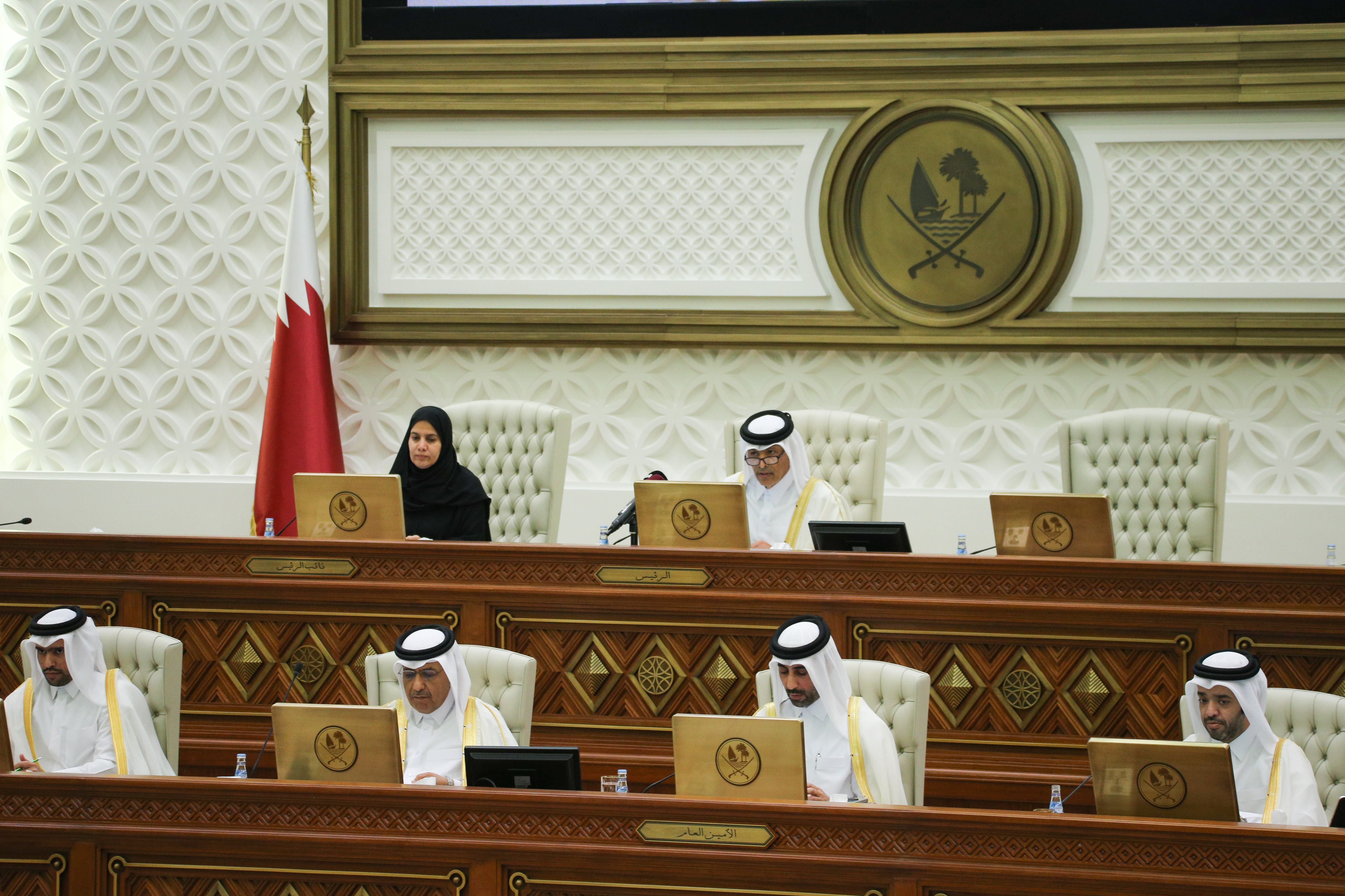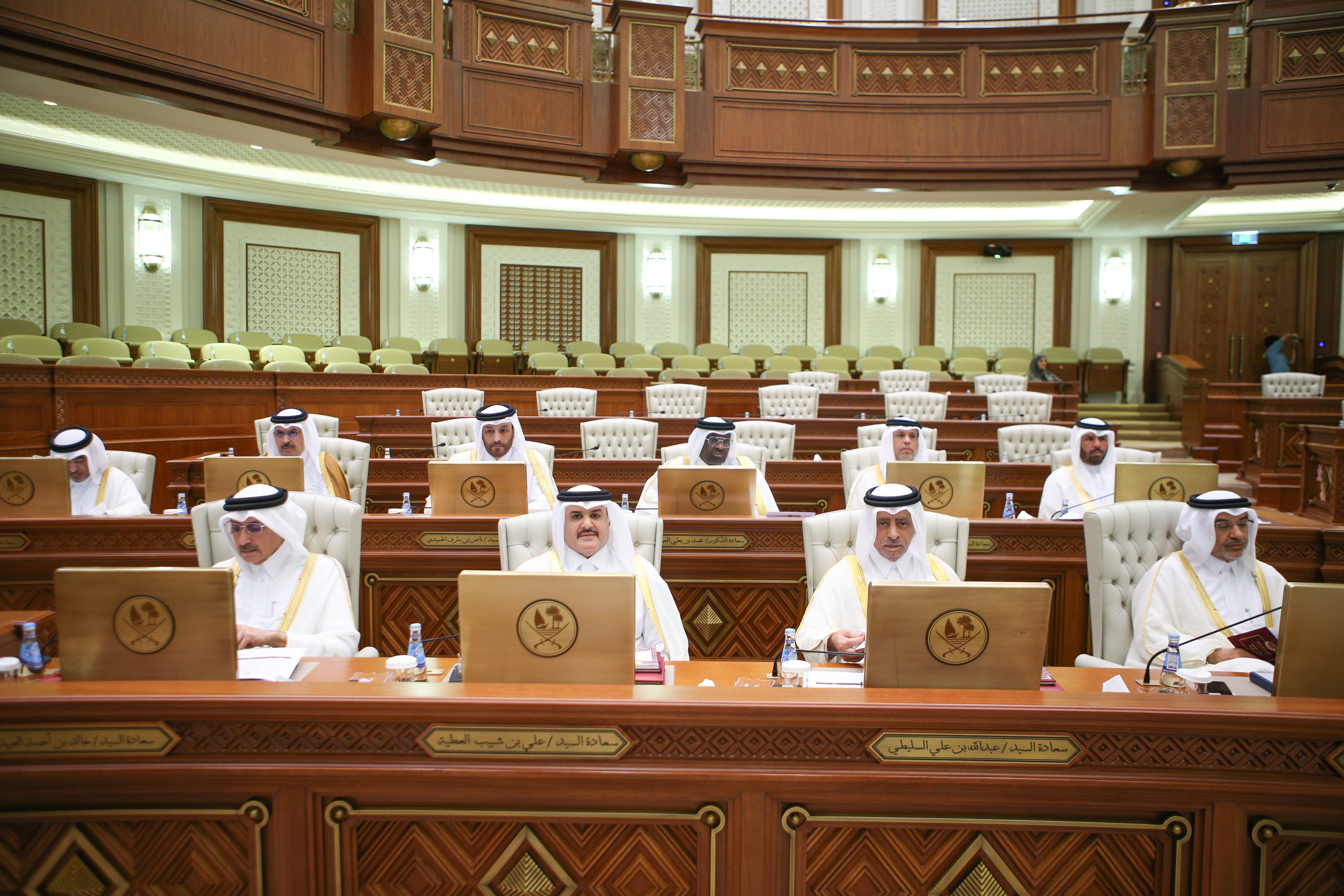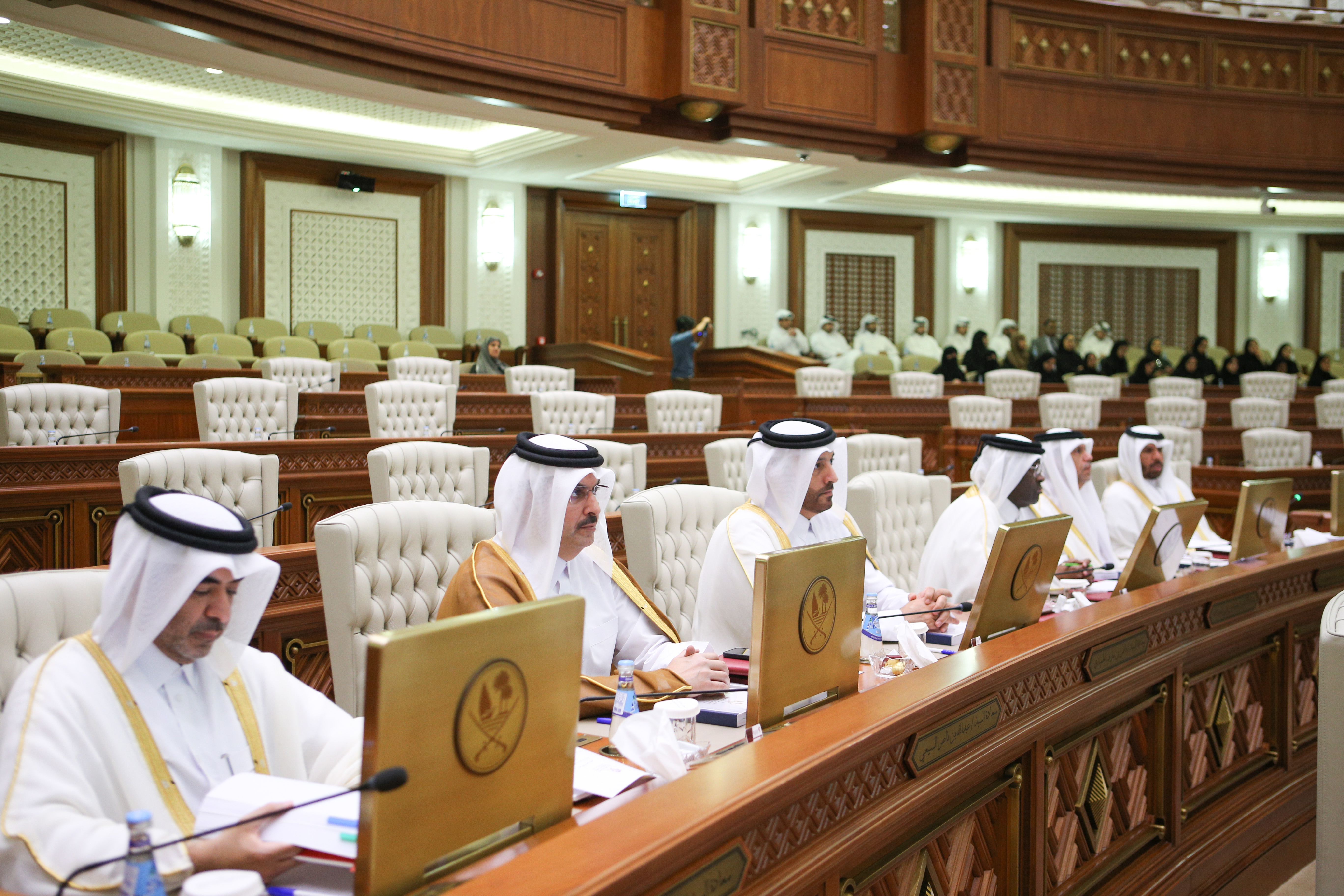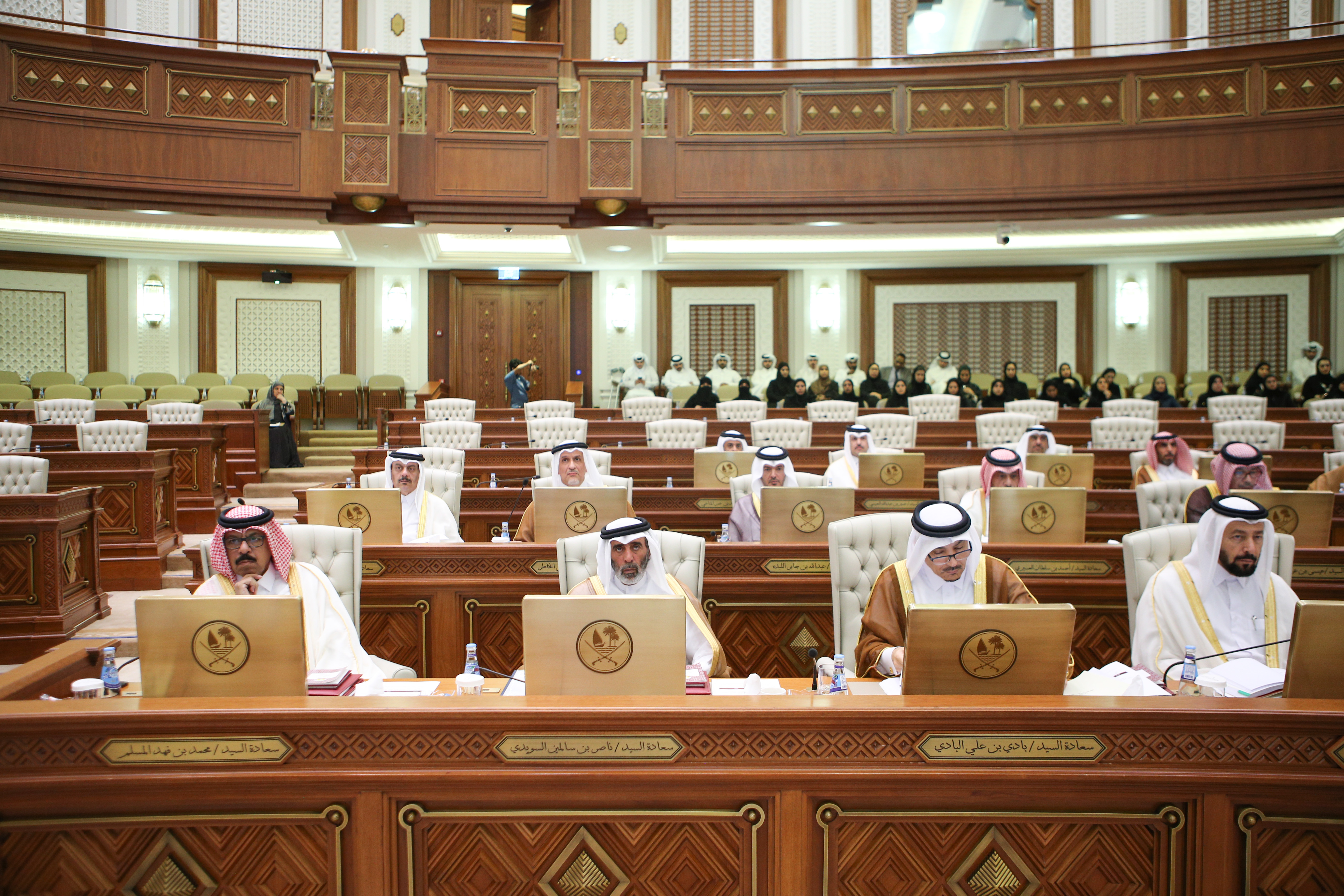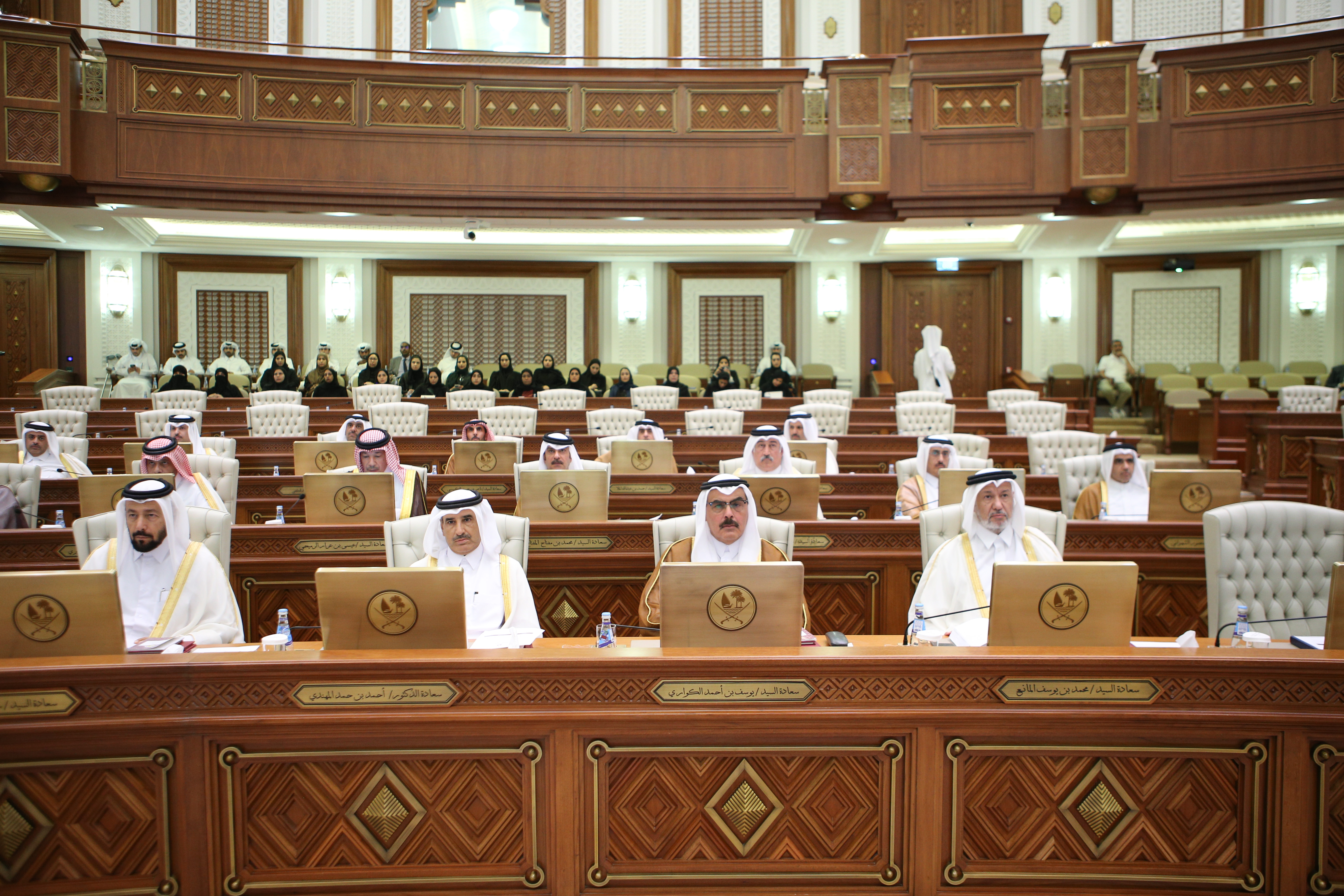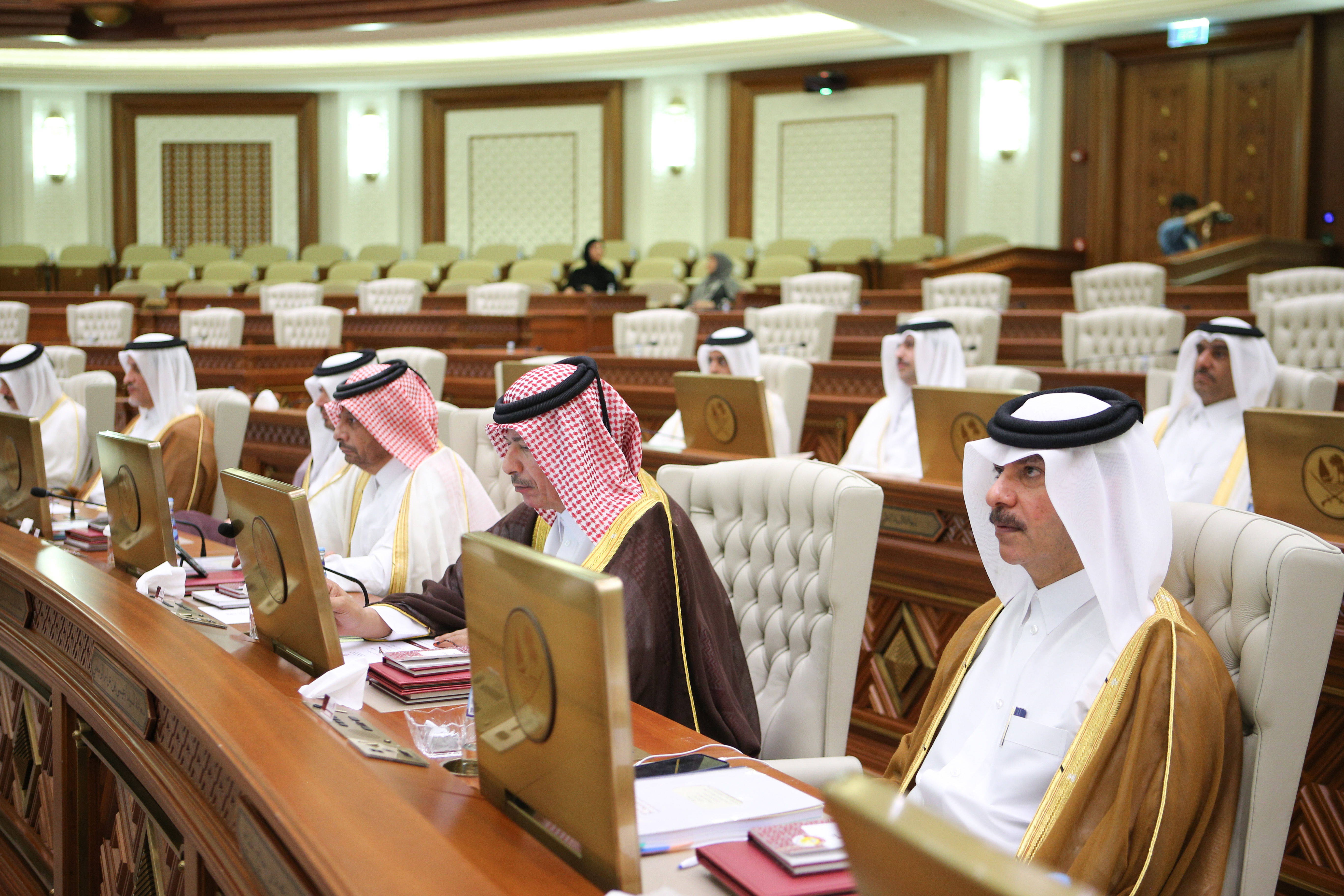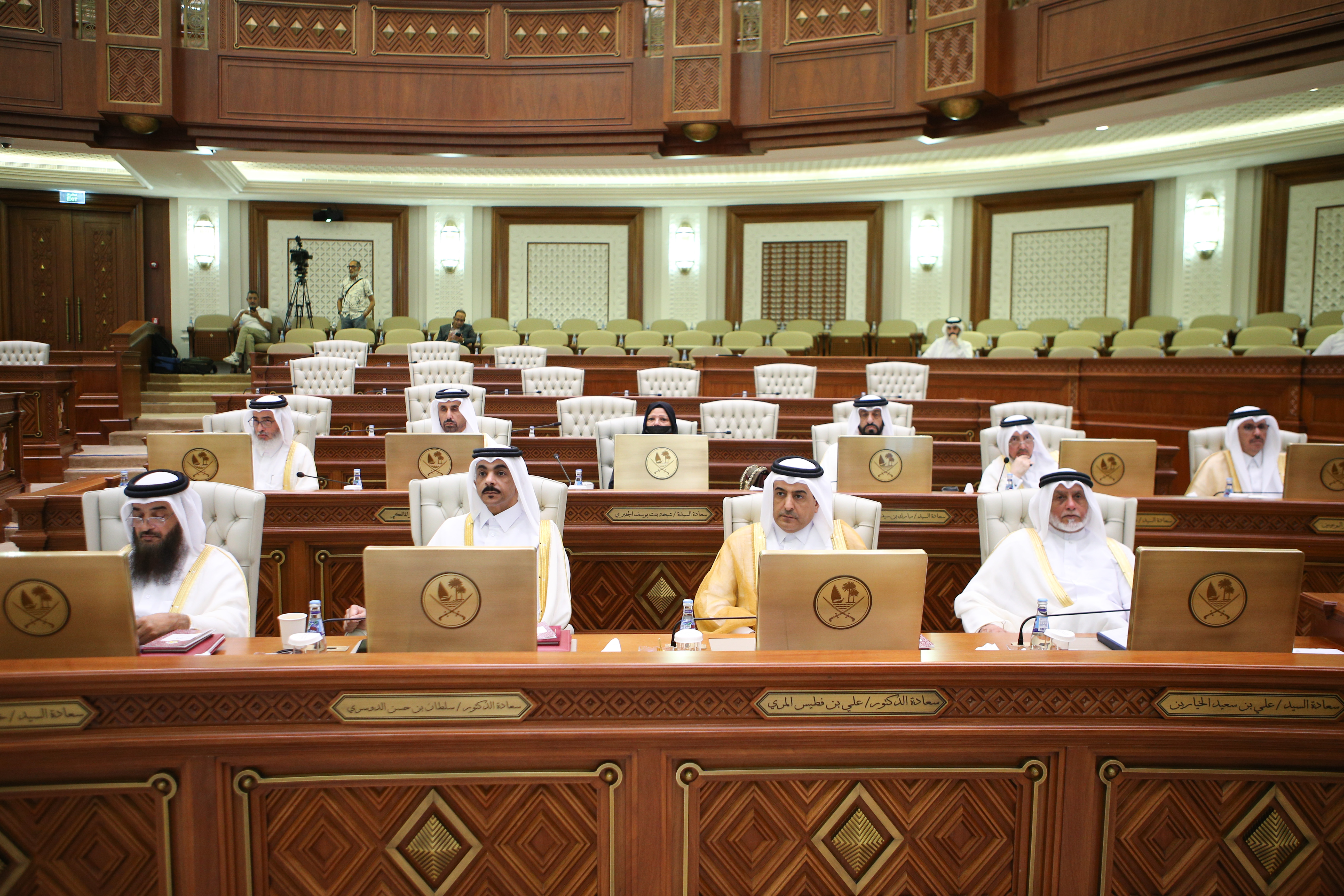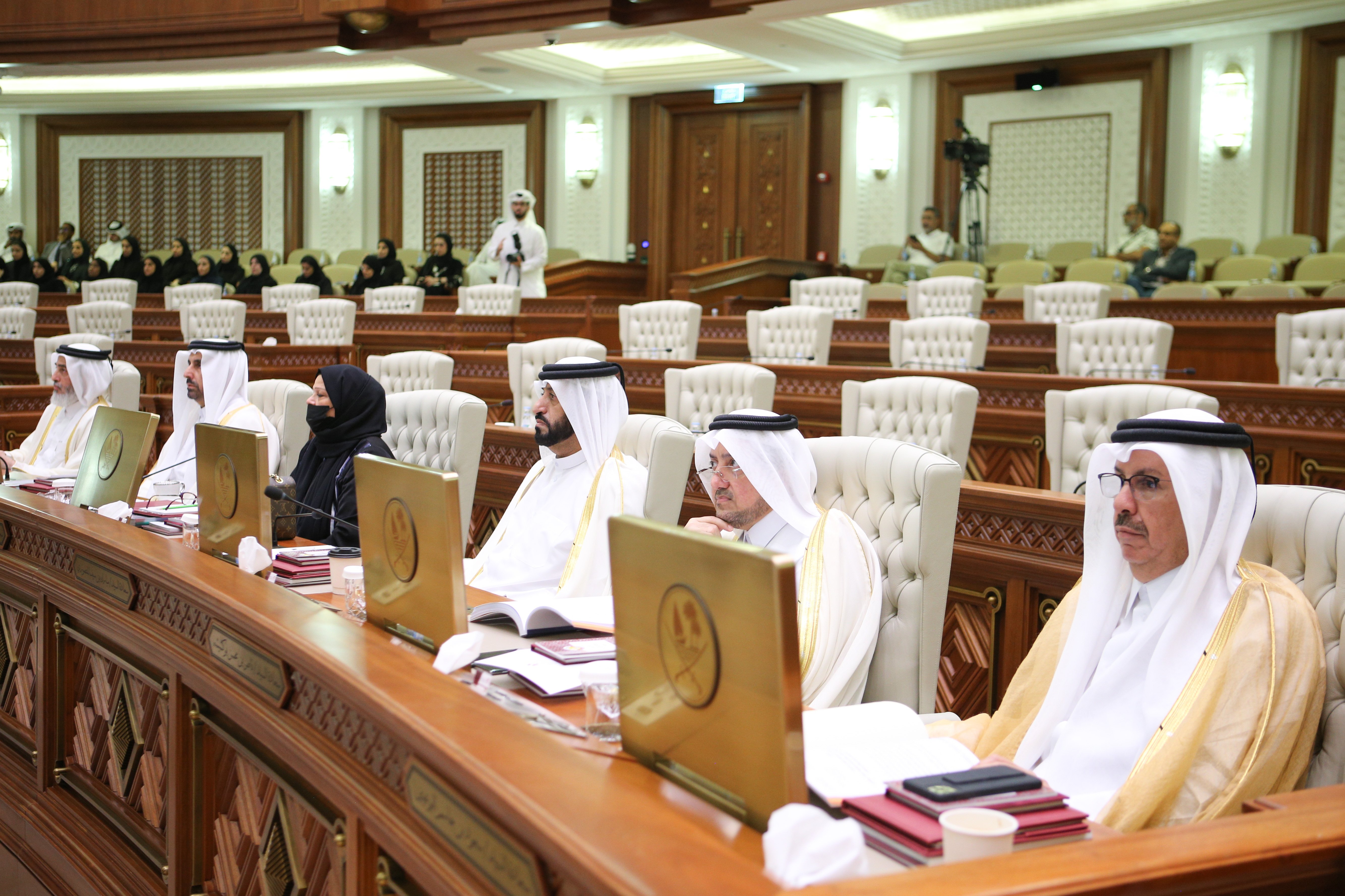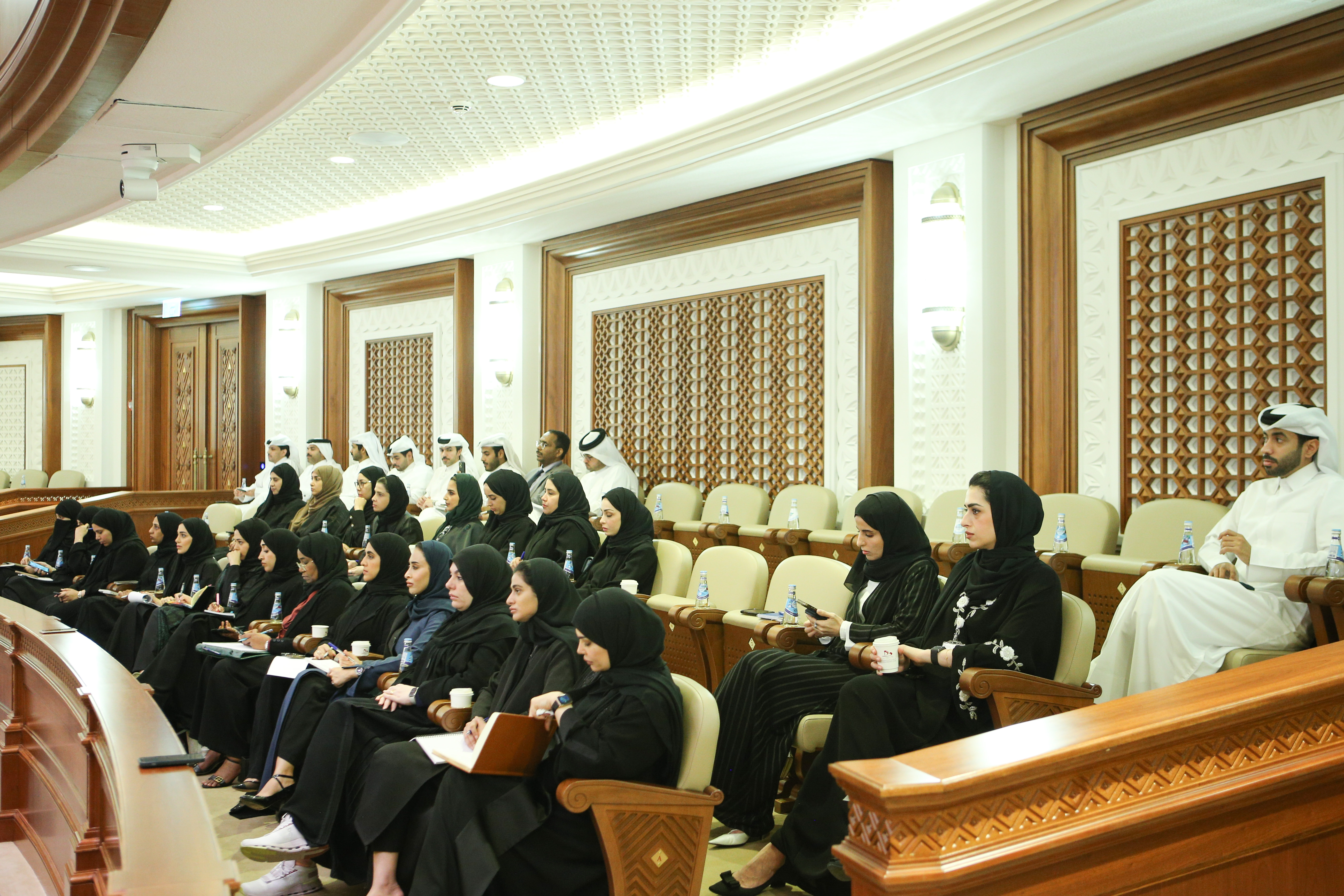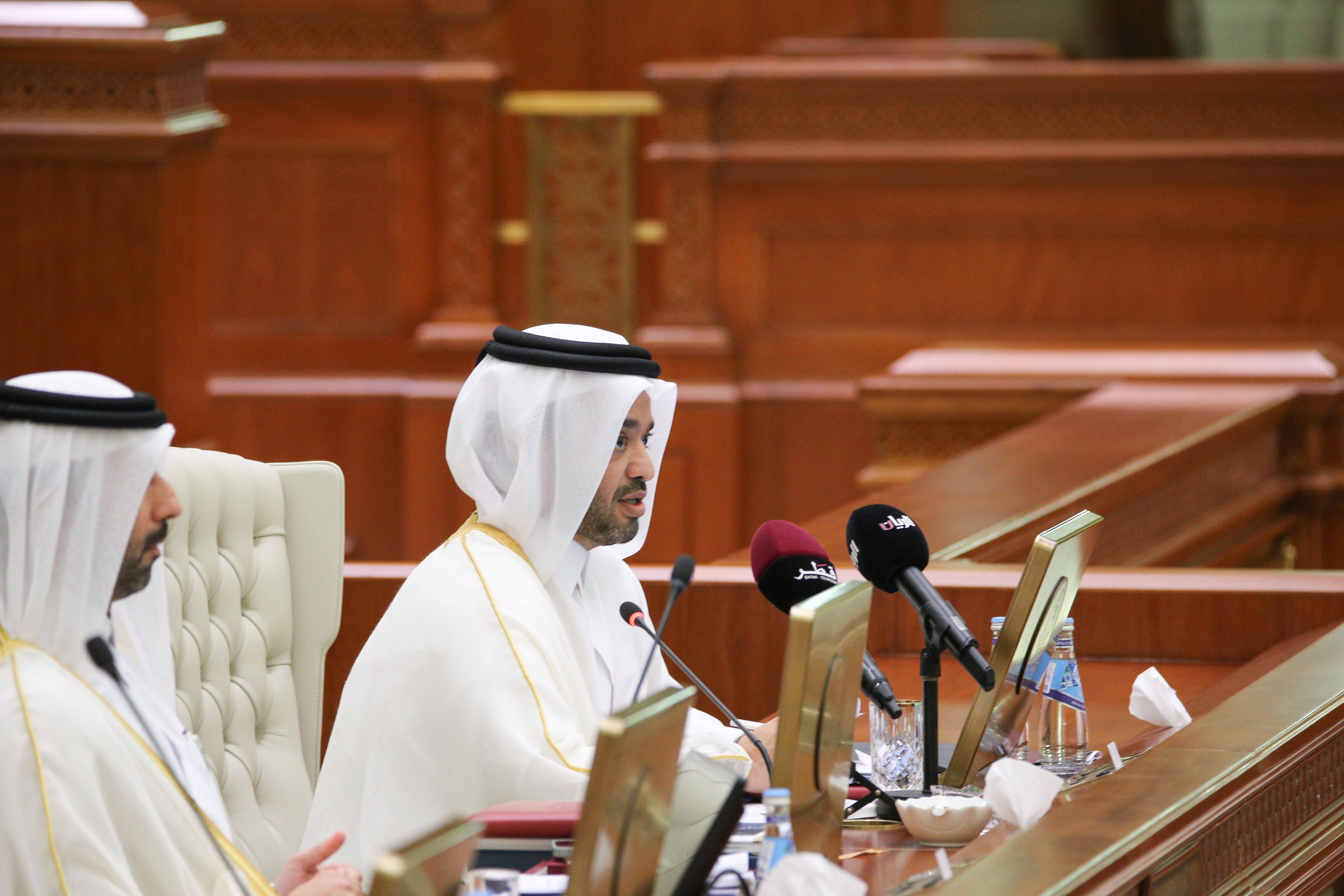Shura Council Briefed on Efforts to Develop Tourism Sector
03 June 2024
The Shura Council held its regular weekly session at Tamim bin Hamad Hall on Monday under the chairmanship of HE Speaker of the Shura Council Hassan bin Abdullah Al Ghanim.
At the outset of the session, the Council expressed its strong condemnation and denunciation of the heinous massacres committed by the Israeli occupation forces in Rafah, which represent a blatant violation of all humanitarian values and international principles.
The Council called on the international community, world's parliaments, and international and regional parliamentary unions to take immediate action and put pressure to stop these brutal attacks and hold those responsible accountable, expressing its full solidarity with the brothers in Rafah, and denouncing the unjustified violence against innocent civilians.
The Council heard a presentation by HE Chairman of Qatar Tourism Saad bin Ali Al Kharji on the strategic plan for tourism 2024-2030, the most prominent policies pursued to revitalize this sector, plans to attract investments to it, and the most prominent challenges facing such efforts.
At the beginning of the discussions, HE the Speaker of the Shura Council welcomed the efforts spared to advance the tourism sector and encourage investment in it in order to fulfil the goals of national development and the goals of the Qatar National Vision 2030, and implement the directives of the wise leadership in this field.
His Excellency drew attention to the discussions that took place in the Shura Council's sessions within their consideration of the 'Development of the tourism economy' file, adding that the Council submitted a proposal in the desire to the esteemed government last April on this subject, in an effort to advance this important sector and provide possible solutions to advance tourism.
He pointed out that tourism is a stand-alone industry as it has become a complex economy in which the public and private sectors interact to create an integrated tourism experience.
His Excellency touched on the importance given by Qatar National Vision 2030 in its third pillar regarding economic development, noting that tourism is one of the important development sectors that enhances economic diversification efforts, a matter which calls for making every effort to advance this sector and transform Qatar into a leading tourist destination.
During the presentation, HE Chairman of Qatar Tourism said that Qatar National Tourism Sector Strategy 2030 seeks to cement Qatar's position as a global tourist destination by benefiting from the country's cultural and geographical diversity.
He pointed out that developing tourism infrastructure is one of the pillars of the strategy, along with improving the quality of services provided and adopting the best international practices in this field, with the aim of increasing the contribution of tourism to the national economy and attaining sustainable development that takes into account environmental and social dimensions.
Regarding tourism sector policies, HE Saad bin Ali Al Kharji stated that they depend on a number of key axes, including strengthening partnership between the public and private sectors, facilitating investment procedures, and providing a legislative environment that encourages growth and investment.
He added that these policies focus on improving visitors' experience by providing high-quality services, developing tourist facilities, enhancing security and safety, and adopting innovation and using technology to enhance efficiency and improve the tourists' experience.
Regarding the targeted groups for tourism, Al Kharji highlighted that they include a variety of categories, foremost of which are the cultural, sporting, familial and recreational, business, conferences, medical and environmental tourism. His Excellency pointed out that incentives and facilitations are being granted to local and international investors, in addition to streamlining the procedures with the objective of drawing investments to the tourism sector. HE Al Kharji talked about the QT-run Service Excellence Academy, along with the objectives and programs it provides to serve the tourism sector, noting the efforts being made to enhance the programs, as well as tourism-relevant academic and training curricula in local universities. His Excellency touched on the challenges facing the tourism sector and emphasized that notwithstanding the massive progress made to advance the tourism sector, there are a multitude of challenges, primarily competing with other tourism destinations and the significance of maintaining balance between tourism development and conserving environment and cultural patrimony, in addition to the challenges related to providing qualified talents and ensuring sustainable growth, given the global economic changes. QT strives to confront these challenges through crafting effective policies and carrying out strategic projects that promote Qatar's prominence as a leading tourism hub, His Excellency underlined. He underscored the QT's commitment to executing the Qatar National Tourism Sector Strategy 2030, through upgrading this critical sector that constitutes a core pillar in diversifying the national economy, Qatar's standing on the global tourism map and accomplishing the intended objectives to draw 6 million visitors by 2030. HE Al Kharji highlighted numerous milestones that have been accomplished in tourism sector as corroborated by indices and figures, such as the number of tourists that reached 2.3 million in Qatar during the past five months. In his response to the remarks of the members of the Shura Council, HE Al Kharji stated that QT is committed to ensuring a unique tourism experience that respects Islamic values and promotes the Qatari inveterate traditions and customs, adding that QT boasts of the Qatari culture and identity and introducing the visitors to them. His Excellency also affirmed that QT intends to ensure high-level tourism experience at affordable prices to help all community members capitalize on this experience, indicating that QT has been constantly working to advance infrastructure and tourism facilities to meet the visitors' expectations and ensure stellar experience that best suits their needs and potential. In their remarks, members of the Shura Council commended the QT-backed efforts that, in accordance with the directives of the wise leadership, aim to advance the tourism sector in the country, supply this sector with qualified national cadres and foster investment in pursuit of achieving the Qatar National Vision 2030. In their remarks, members of the Shura Council focused on the significance of countering the challenges facing the tourism sector, emphasizing the importance of honoring Islamic and national values, as well as giving foremost priority to the local heritage when tourism advancement plans are designed to draw tourists from all over the world. They underlined that achieving this balance is fundamental to ensure provision of unique tourism experience and noted that such tourism activities should reflect the history of Qatar, its cultural patrimony, religious values and national identity. The members of the Shura Council emphasized the importance of encouraging domestic tourism and organizing a range of tourism events during the entire year at affordable prices for all to ensure that all community members receive high-quality tourism services. Also, they underscored the importance of streamlining the government procedures and tourism requirements to attract tourism investments and offer incentives to conduct tourism projects and activities. Thereafter, the council reviewed a draft law to issue the law on child rights submitted by the esteemed government and decided to refer it to the Legal and Legislative Affairs Committee for further perusal and submission of its report to the council.

